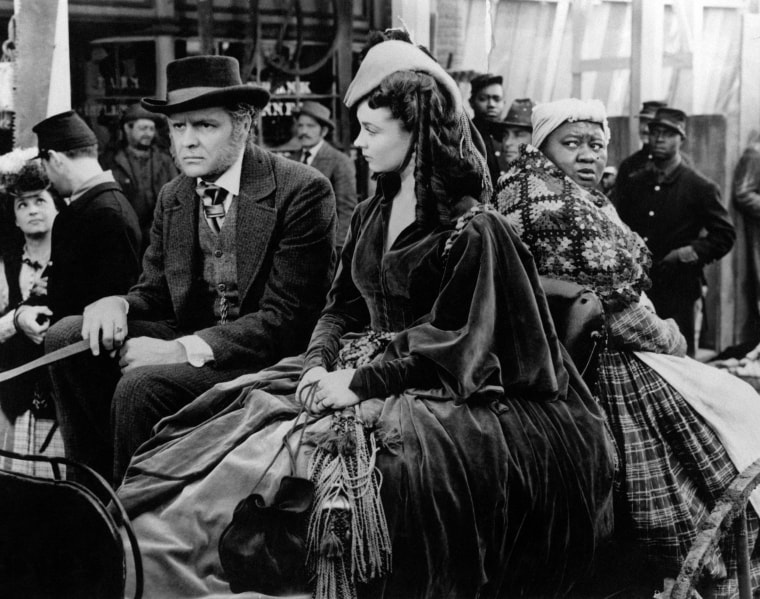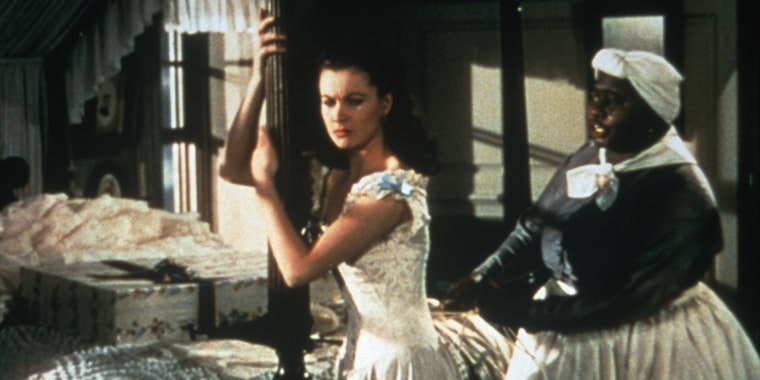"Gone With the Wind" is back on HBO Max — with two additional videos that discuss the historical context of the classic film. WarnerMedia had pulled the movie two weeks ago, citing the need to address its "racist depictions."
In the first video, TCM host and film scholar Jacqueline Stewart discusses "why this 1939 epic drama should be viewed in its original form, contextualized and discussed." A second one-hour video is a recording of a panel discussion, "The Complicated Legacy of 'Gone With the Wind,'" from the TCM Classic Film Festival in April 2019, moderated by author and historian Donald Bogle.
Stewart, in the 4:26-minute intro segment now added as an extra feature for "Gone With the Wind" in HBO Max, calls the movie "one of most enduringly popular films of all time."
At the same time, "The film has been repeatedly protested, dating back the announcement of its production," Stewart says. "Producer David O. Selznick was well aware that Black audiences were deeply concerned about the film's handling of the topic of slavery and its treatment of Black characters."
Despite Selznick's assurances to the Black community that he would be sensitive to their concerns, "Gone With the Wind" presents "the Antebellum South as a world of grace and beauty without acknowledging the brutalities of the system of chattel slavery upon which this world is based," Stewart says.

She continues, "The film's treatment of this world through a lens of nostalgia denies the horrors of slavery, as well as its legacies of racial inequality."
Stewart also notes that Black cast members were not allowed to attend the movie's premiere because of Georgia's Jim Crow segregation laws. In addition, Hattie McDaniel, who was the first African-American person to ever win an Academy Award for her portrayal of the servant Mammy in the film, was not allowed to sit with the other cast members at the Oscars.
"Watching 'Gone With the Wind' can be uncomfortable, even painful," Stewart says. "Still, it is important that classic Hollywood films are available to us in their original form for viewing and discussion."
"Gone With the Wind" stars Vivien Leigh, Clark Gable, Hattie McDaniel and Olivia de Havilland. The film, adapted from the 1936 novel by Margaret Mitchell, is set during the Civil War and the Reconstruction era. The HBO Max description of the film reads, "Scarlett O'Hara's battle to save her beloved Tara and find love during the Civil War."
The movie won eight competitive Oscars including best picture, best actress for Leigh, best director for Victor Fleming and best supporting actress for McDaniel. The American Film Institute ranks "Gone With the Wind" as the No. 4 best American movie of all time, after "Citizen Kane," "Casablanca" and "The Godfather."
